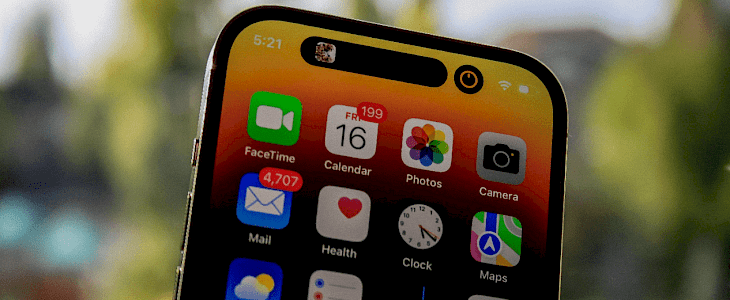
We all worry about our security and privacy settings in the apps we download to our devices. However, sometimes users don't realize that the apps they regularly use may be useless and harm their devices. Often, even in the App Store, there are spyware apps that collect information that is not related to their intended purpose. Every user who downloads a new application should be alerted when, for example, an antivirus requests permission to access the phonebook, gallery, and so on. Such "guests" that collect all the information on your device should be avoided.
Today we will tell you which iOS apps you should avoid under any circumstances to keep both you and your data safe.
Flashlight apps
You can often find a long list of flashlight apps in the App Store that don't actually have any useful functions. All flashlights have been on any iPhone for a long time, so these apps should already raise at least the slightest suspicion about their performance. You're very lucky if such a utility turns out to be simply non-functional and doesn't cause any damage to your device. Developers of such utilities usually describe them in beautiful phrases, paint their functions in all their glory, and inspire trust among their users. However, downloading such a flashlight does not end well.
In the past, such apps were a favorite creation of hackers who used them to steal personal data from the gadget's owner under the guise of a regular flashlight. Fortunately, today, thanks to digital awareness and the flashlight built into your smartphone, you can do without downloading such "spyware," but it's still a good idea to make sure that the app is worth avoiding.
Apps designed to free up space on your smartphone
All the apps that claim to improve your phone's performance and optimize its processes are often useless. The developers of such utilities claim that they will fix memory problems on your phone and help you regulate the operation of other applications in the background. Ordinary users not very well versed in all the nuances of such applications may not even suspect that such programs must be handled with caution. Unfortunately, such programs are often useless because modern gadgets can handle RAM just fine.
There are often cases when such cleaners, on the contrary, harm the health of the gadget because they block certain processes that the system cannot recognize later. This forces the system to load everything over again, significantly affecting your device's functionality. A good solution, in this case, would be to completely abandon such cleaners because, as we have already said, your device perfectly copes with all background processes, and if it has become slower, try to uninstall several programs that you do not use.
CamScanner and other questionable scanning Apps
Similar applications are designed to convert what the user takes a photo of into a PDF file. Unfortunately, the developers of such scanners have been caught more than once adding viruses and trojans to them, which turn the entire smartphone into one continuous ad. In addition, the appearance of ads is not the worst consequence of downloading such scanners, as some users have noted that they have caused money to disappear from their cards and automatically sign up for paid subscriptions to unnecessary utilities.
A much better option would be to use software from trusted developers: Adobe Scan and Microsoft Office Lens. Of course, no one can rule out the possibility of counterfeiting such utilities. Still, the fact that trusted companies develop them reduces the percentage of downloading a hacked version.
ES File Explorer and similar applications
A few years ago, ES File Explorer was a fairly popular application that helped users organize files and documents on their devices. However, unfortunately, over time, everything has changed, and now this utility presents a huge amount of advertising and unnecessary software.
Of course, sometimes advertising can be useful, such as notifications about new technological products, educational offers like discount code for paperhelp.org, or promotions on airline tickets and travel. But such advertisements can often distract from important things and lower concentration.
In addition, not so long ago, the developers of this utility were caught embedding code into their creation that allowed interaction with ads without the smartphone owner's knowledge. The program has been removed from official stores, but it is still available for download via the developers' website, so you should be careful not to fall into the ad trap. Other hackers have taken ES File Explorer as an example and created similar applications without functionality. To avoid interference from fraudsters, you should use applications from verified publishers: Google Files, Total Commander, X-plore File Manager, and others.
GetContact and other programs to determine the number
GetContact and other similar applications are aimed at protecting you from spam attacks and fraudulent calls, but in reality, such utilities are far from what they claim to be. The developers say that GetContact allows you to find out how you are listed in other people's phone books. Many users need to realize how much data this application collects about their personal information.
After downloading the app, you give it access to a huge database of your confidential data, which third parties can then do whatever they want. For example, some fraudulent organizations can sell the numbers recorded in your contacts to other firms and companies that will use them at their own discretion. If your phone number ends up in this application, you can find instructions online with a detailed explanation of removing your phone number from the database.
Our curiosity can sometimes lead us to the wrong place, and certain apps can become potentially dangerous. Avoid the iPhone apps listed above to protect yourself from scammers and information theft.





